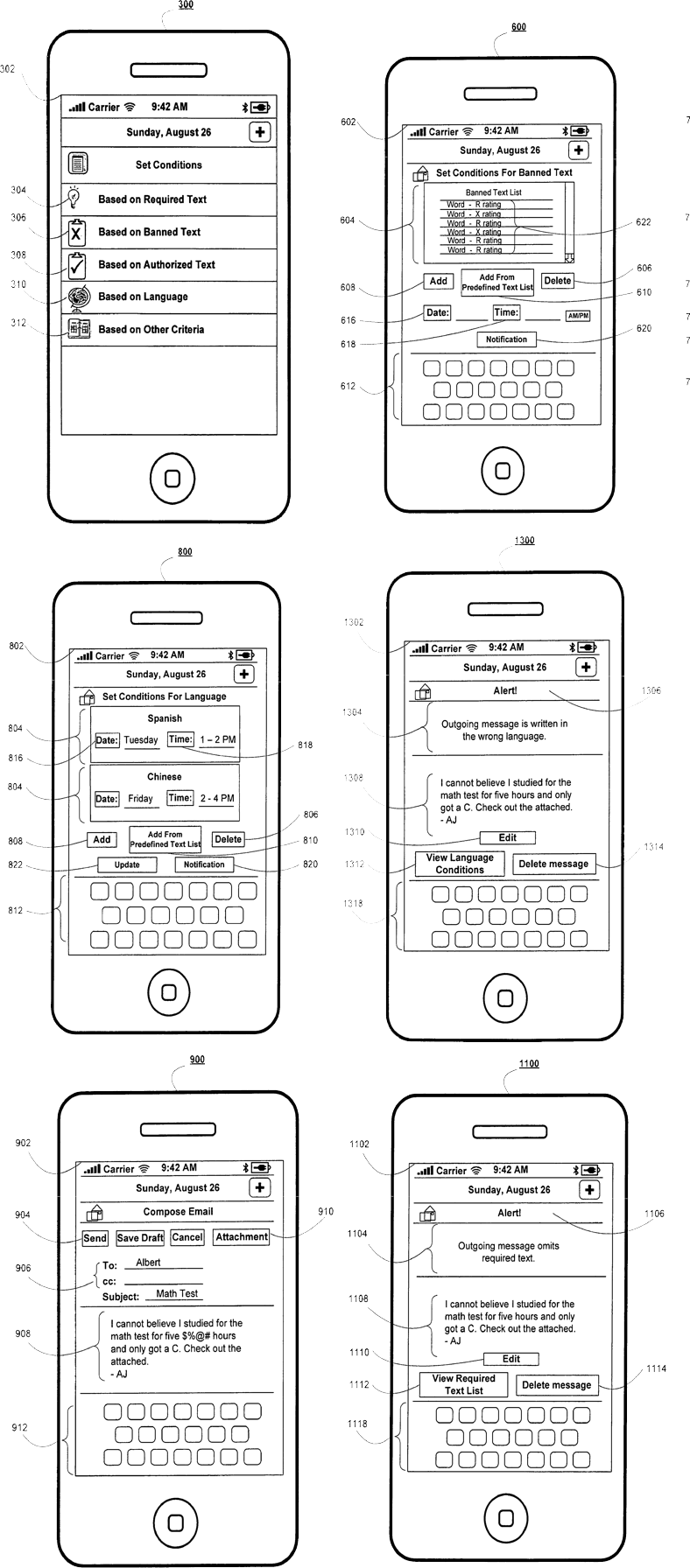Apple's 'anti-sexting' patent generating big buzz
The patent titled "Text-based communication control for personal communication device," originally filed by Apple in January of 2008, was awarded to the iPhone maker on Tuesday by the United States Patent and Trademark Office.
Although Apple has yet to implement the technology in a shipping product, it promises to allow administrators — or parents — to set permission controls that could prevent children from sending and receiving explicit text messages, more commonly referred to as "sexting."
Messages containing unauthorized text could either be censored or deleted entirely before reaching the recipient, and parents could select an option that would allow them to receive an alert should their child attempt to begin sexting with one of their friends.
Apple says the technology behind the parental controls would also be capable of evaluating whether or not a text message communication contains approved text based on, for example, objective ratings criteria or a user's age or grade level.
By these same conventions, the technology outlined in Apple's patent could also be put to educational use as a study tool, according to the filing. Parents could turn text messaging into an instructional tool or study aid by setting one or more modes, such as language, vocabulary, grammar, spelling, punctuation.
For example, parents can require a child who is slumping in their foreign language class to send a certain number of text messages each week in that language. Should the child not meet that quota, their texting privileges could be dialed back or revoked.
Along the same lines, the technology could also force children to brush up on their grammar, requiring that messages include designated vocabulary words, proper spelling, as well as correct grammar and punctuation, all based on a skill level set by their parents.
Although Tuesday's patent covers only text-based communications and not explicit imagery, Apple's intellectual property portfolio already contains face detecting technology that has since found its way into the company's iLife suite of digital lifestyle applications. As such, it's conceivable that particular technology could be adapted in time to detect other body parts, allow parents to pull the plug on all forms of "sexting."
 Aidan Malley
Aidan Malley











 Malcolm Owen
Malcolm Owen
 William Gallagher and Mike Wuerthele
William Gallagher and Mike Wuerthele
 Christine McKee
Christine McKee
 William Gallagher
William Gallagher

 Marko Zivkovic
Marko Zivkovic









